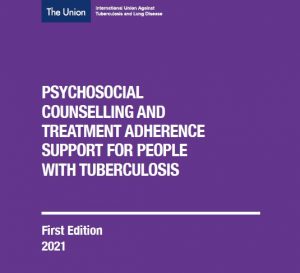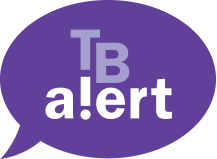
The pioneering guide addresses critical gaps in TB care and control by focusing on overcoming the psychological, social and economic factors that prevent people from accessing diagnosis, adhering to care plans and successfully completing treatment.
The guide is co-authored by TB Alert’s International Programme Director Sameer Sah and Dr Gill Craig, a psychologist with extensive experience of TB.
The TB Psychosocial Support guide was supported by an international reference group comprising TB survivors, members of multilateral organisations, TB activists, academia, researchers and representatives of civil society organizations working with various TB key populations.
The manual fulfils a huge knowledge gap among health and care providers that is critical to achieve good treatment outcomes for people with TB. It encourages and supports policy makers to incorporate and promote psychosocial support as an integral part of all TB programmes around the world. Mike Mandelbaum, Chief Executive of TB Alert
Tuberculosis is curable if the medications, which are often unpleasant, are taken daily and uninterrupted over a course lasting six to 24 months. This pioneering manual provides the tools to support affected individuals to complete this daunting and difficult journey. While it will be useful for clinicians, programme managers and policy makers, I feel the manual’s primary target is the trained health worker, social worker and care worker who, together with their patient, can translate the guidance into practice. Professor Antony Harries, Senior advisor with The International Union Against Tuberculosis and Lung Disease
The Political Declaration issued at the 2018 United Nations High-Level Meeting (UNHLM) outlined strong targets and commitments to further strengthen communities, rights and gender (CRG) in national TB responses. This psychosocial support guidance is critical to strengthening TB responses for those most vulnerable, but it must also be accompanied by the appropriate mix of investments to enhance implementation and accountability, to ensure communities can implement themselves and/or monitor the effective implementation of this psychosocial support guidance as part of enhanced TB accountability. At Stop TB we support these efforts as part of a CRG-centred TB response. Dr Lucica Ditiu, Executive Director of the Stop TB Partnership
Therapy today for tuberculosis and drug-resistant TB is fully oral, more effective and safer. However, success will not be complete unless we address the psychological and socioeconomic needs of people affected by TB. This manual targets all providers of psychosocial support to act as one multidisciplinary team in pathways that improve outcomes and inspire decision makers to set aside resources to introduce new models of care for old problems. Dr Askar Yedilbayev, TB Team Lead, WHO Regional Office for Europe
Download as PDF (single pages) – link directs to external site
Download as PDF (double page spreads) – link directs to external site

Comments are closed.